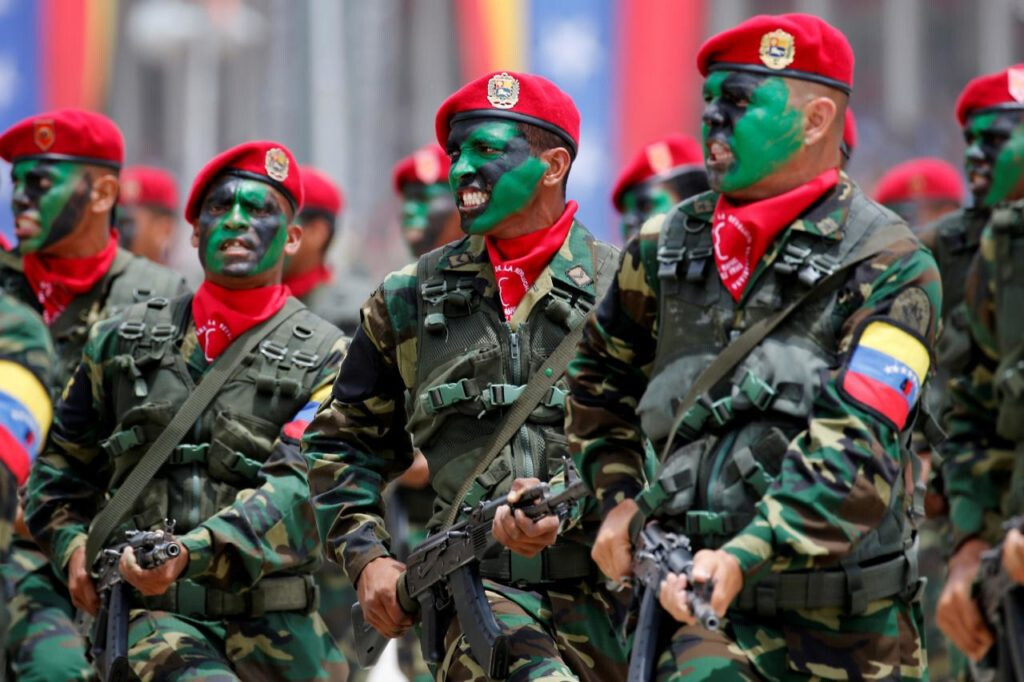
The military pressure exerted by the Donald Trump US administration on the Venezuelan Nicolás Maduro regime has escalated to an unprecedented level, leading to an atmosphere of war in South America. Although the stated reason is the "eradication of drug cartels," the dominant view is that the real objective is Regime Change to oust the Maduro regime. In response, the Maduro government has launched large-scale civil defense drills, vowing to fight to the death and declaring it will go to war if necessary, bringing tensions between the two nations to a fever pitch.
Drug Cartel Eradication as Pretext, Regime Change as the True Goal
Since President Trump signed a secret directive in early August authorizing military action against South American drug cartels, the US has ramped up pressure on Venezuela on all fronts. President Trump has labeled Nicolás Maduro a "narcoterrorist" fugitive and placed a $50 million bounty on his head.
Additionally, the US deployed a large contingent of warships, including Marines and Aegis destroyers, off the Venezuelan Caribbean coast. In this area, they have bombed suspected drug trafficking vessels four times or more, killing at least 21 people. Last week, the US focused on building a legal basis for military intervention by classifying relations with drug cartels as a 'non-international armed conflict' and declaring cartel members as 'unlawful combatants.'
However, most observers suspect that the US's hardline policy is aimed at overthrowing the Maduro regime, not eradicating drugs. Venezuelan Vice President Delcy Rodríguez expressed certainty that the strategic goal of the US is 'regime change,' resolving, "We will not hand over our homeland."
Maduro Regime Feels 'Real Fear' After Iran Bombing Incident
The Maduro regime's order for civil defense drills and its strong backlash against the US military threat are analyzed to be influenced by the precedent set by the Trump administration's bombing of Iranian nuclear facilities in June. Phil Gunson, an analyst based in Caracas, assessed that "Trump's bombing of Iran was a wake-up call for members of the Venezuelan government," explaining that Chavistas, who previously downplayed the possibility of military intervention, felt a realistic fear after witnessing Iran's failure to militarily respond. President Maduro also attempted to defuse the crisis by sending a letter to Trump requesting dialogue.
In response, the Venezuelan government has shown preparations for a military invasion, including conducting drills for a cyberattack on the subway system as part of a 'nationwide civil defense and public preparedness exercise.' Caracas Mayor Carmen Meléndez, dressed in military uniform, encouraged the drills and warned, "If they invade, we will be waiting." Interior Minister Diosdado Cabello appeared on TV holding a book on the 'military ideology' of Vietnamese revolutionary Ho Chi Minh, warning that US intervention could lead to a 'bloody quagmire' similar to that in Southeast Asia.
Internal Hopes and Fears of Civil War Intersect: Scenarios of 'Gradual Escalation' or 'Large-Scale Airstrikes'
Some within the Venezuelan opposition, who desperately wish for the removal of the Maduro regime, welcome the US hardline approach. María Corina Machado, an ally of opposition leader Edmundo González, who is widely believed to have defeated Maduro in last year's election, defended Trump's strategy as "prescient" and expressed support for the US's 'dismantling of the criminal structure.'
Robert Evan Ellis, an expert who advised the first Trump administration on Venezuela policy, assessed the possibility of the opposition's hopes being realized as 50-50. He predicted that Trump's motivation to avenge the failure of his 'maximum pressure' policy during his previous term would accelerate the provocation of military action. Ellis foresees a 'gradual escalation of pressure' following the Caribbean ship bombings, with the next possible step being airstrikes on drug-related aircraft or strongholds within Venezuelan territory. Furthermore, he does not rule out a large-scale 'multi-pronged attack' scenario involving the destruction of Venezuela's air defense systems and the deployment of F-35 fighters to apprehend President Maduro.
However, many Venezuelans, including those opposed to Maduro, express deep fear of the potential for civil war that a US military intervention could unleash. Juan González, a former White House official, warned that if Maduro were removed, the US could become entangled in a long-term guerrilla war involving various armed groups, including government-affiliated paramilitary organizations, criminal gangs, and Colombian rebels (ELN).
David Smilde, a Venezuela expert at Tulane University, criticized the belief held by some neoconservatives that the Maduro regime would easily collapse like a 'sandcastle' as an 'absolutely preposterous idea,' pointing out that it brings to mind the results of the invasion of Saddam Hussein's Iraq. Local militia members have publicly vowed that an invasion would lead to a "hundred-year war," fueling their resolve for a fierce resistance. The situation in Venezuela is thus plunging into turmoil, leaving deep concerns about military tension and a humanitarian catastrophe.
[Copyright (c) Global Economic Times. All Rights Reserved.]




























